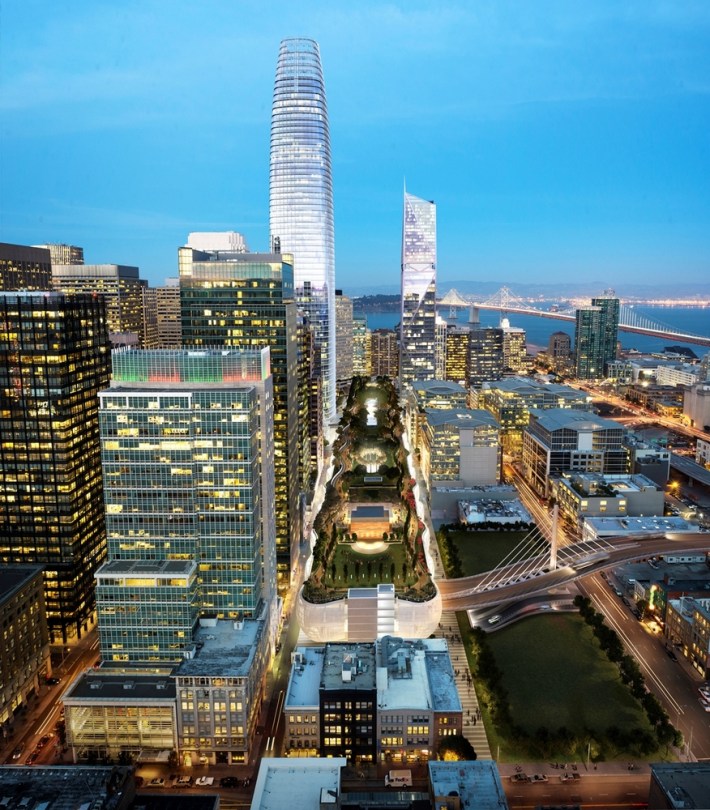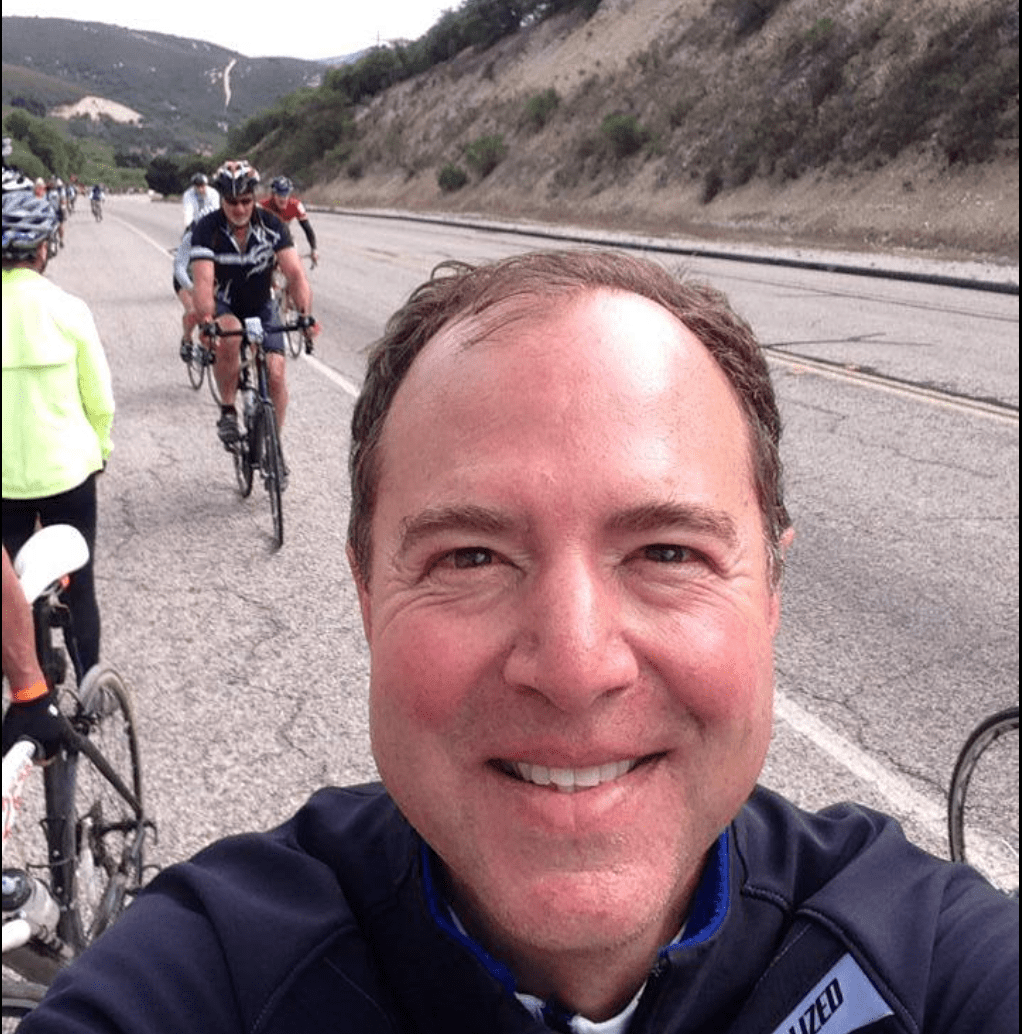Developers Don’t Want to Pay for Caltrain/HSR Extension to Transbay Center
5:41 PM PDT on September 5, 2014
Developers who are building towers around the Transbay Transit Center in SoMa are fighting to reduce a special property tax that will be levied on developments in the area. The biggest loser could be the downtown rail extension to bring Caltrain and California high-speed rail into the terminal, as more of the funds for the regional rail hub and other long-term projects would have to come from taxpayers.

The group of developers is backed by former mayor Willie Brown, who registered as an official lobbyist to work for them in July (he also recently lobbied "pro bono" for AnsoldoBreda, the manufacturer of Muni's current train fleet). Brown previously helped create the Transbay Joint Powers Authority to oversee the massive package of projects centered around what's been called the "Grand Central of the West," expected to open in 2017.
SF Chronicle columnists Phil Matier and Andrew Ross reported in July:
Brown confirmed for us that he is representing Boston Properties -- builder of the 61-story Salesforce Tower -- and more than a half dozen other property owners.
In exchange for the city allowing them to increase the height and density of their projects, the property owners agreed two years ago to be assessed up to $400 million to help pay for a Transbay Transit Center rooftop park and other public improvements to the area.
Only now, thanks to skyrocketing property values and changes in the city's methodology for calculating the assessments, the developers -- paying into what's known as a Mello-Roos special district -- could face up to $1.4 billion in charges.
The Board of Supervisors was expected to approve the agreement creating the Mello-Roos district on Tuesday, but D6 Supervisor Jane Kim postponed the item one week. "We wanted additional time to be able to brief all of the offices on this issue, but also talk to the multiple parties involved," Kim said at the meeting.
Sustainable transportation advocates and east SoMa residents at the meeting blasted the developers' effort to reduce the tax, saying it would undermine the funding plan for projects that have been in the works for decades. In 2012, a massive upzoning plan for the "Transbay District" was approved to concentrate high-density housing and office development there, helping to ensure that new workers and residents arrive by transit, foot, and bike instead of clogging the streets with cars. Developer fees are also expected to help pay for pedestrian safety upgrades, protected bike lanes, and surface transit upgrades that could transform SoMa's dangerous traffic sewers.
Matt Field of TMG Partners said that the proposed agreement "contains fundamental changes that have material impacts on Transbay that weren't anticipated when the board approved the Transbay District plan." He said the development group hopes the delay will "lead to a more productive discussion that can yield a consensus."
Bruce Agid, vice chair of the TJPA Citizens Advisory Committee and a board member of the South Beach/Rincon Hill Neighborhood Association, said the current agreement would only require developers to pay "less than 1 percent of the value of each development project."
"In exchange for the right to build much taller buildings, which ultimately results in significant increases in net revenues, or profits, the developers agreed to a Mello-Roos community facilities district special tax to fund their portion of the necessary infrastructure improvements," said Agid. "Unless there is a fundamental flaw in the plan or implementation document, the developers must pay their fair share. If not, these infrastructure costs will be shifted onto us, the taxpayers."
In a letter urging the Board of Supervisors to approve the tax agreement without lowering the tax assessment rates, Livable City Executive Director Tom Radulovich called the Transbay Transit Center "the most important transportation project in the Bay Area," since it will serve thousands of new residences and jobs and provide unprecedented transit connectivity for the region.
"We all like 'compromise,' we all like 'consensus,'" said Supervisor Scott Wiener. "But in this scenario, what that means is that every dollar of 'consensus' is a dollar that's not going to the downtown extension. And then we're left with a very expensive bus station with no train service -- or, at least, it's going to take a heck of a lot longer to get there."
Stay in touch
Sign up for our free newsletter



